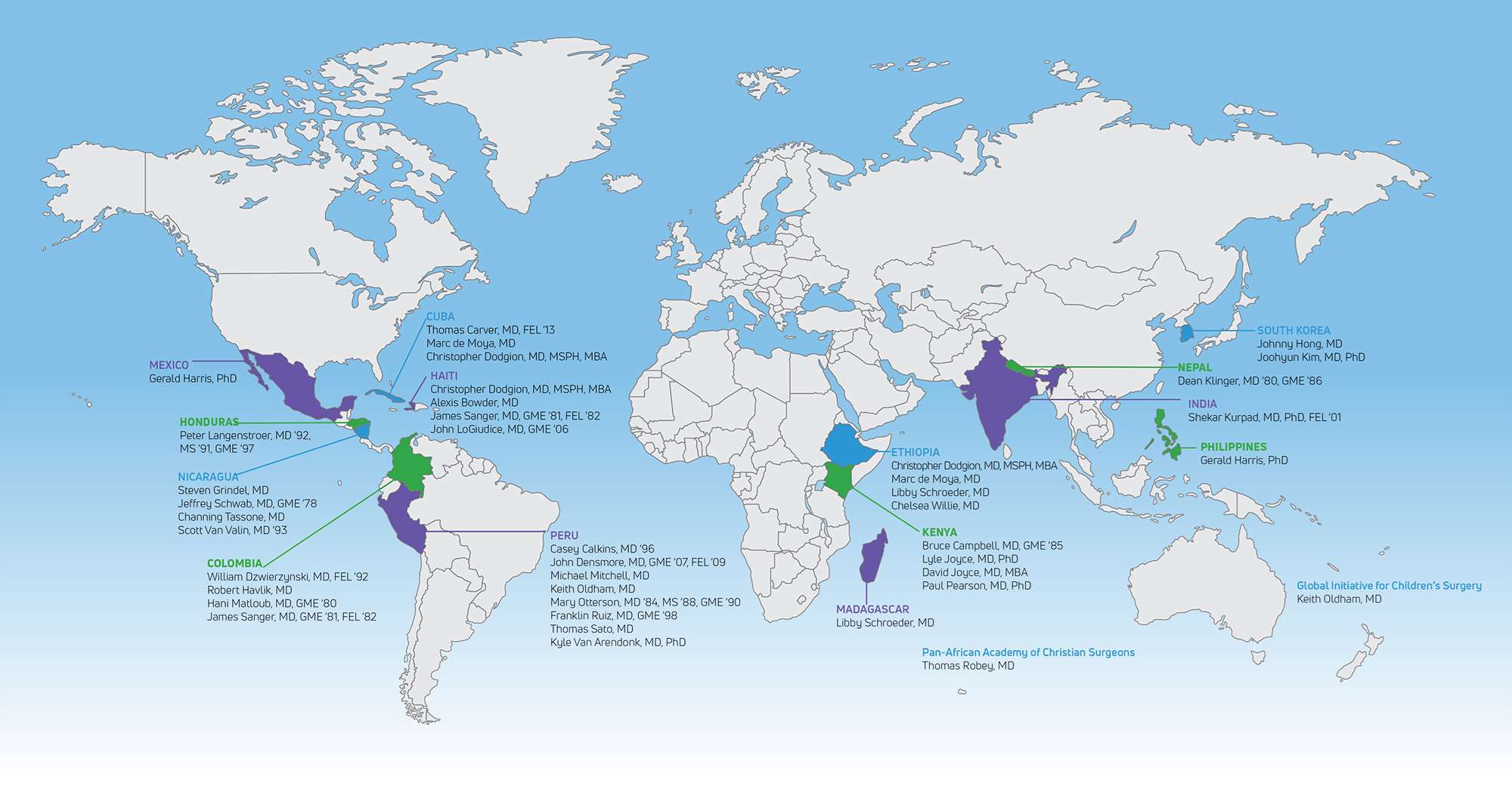Advancing Surgery Across the Globe

View full size version of map (JPG)
More than five billion people in the world lack access to basic essential and emergency surgical care, according to The Lancet Commission on Global Surgery. The World Health Organization has indicated that more than a shortage of material, the lack of trained surgical workforce is critical.
To address this challenge, MCW surgeons in various subspecialties are engaging in partnerships with countries throughout the world to advance global surgical care.
“Growing and developing long-term partnerships is an important part of what we do at MCW as a member of the global community, as well as a key component of academic medicine,”
says Marc de Moya, MD, the Milton and Lidy Lunda/Charles Aprahamian Professor of Trauma Surgery at MCW.
Franklin J. Ruiz, MD, GME ’98, MCW assistant professor of anesthesiology, says the COVID-19 pandemic has shown this even more. “We are global citizens, and we should work in global terms,” he shares. “Thinking broadly makes the entire world a better place.”
That is one reason Drs. de Moya and Ruiz are two of dozens of MCW faculty and medical teams who work with nonprofits and hospitals worldwide to provide both training and patient
care. Expertise that MCW shares covers every surgical subspecialty and is focused on capacity-building of global surgeons to improve safe surgery.
Dr. Ruiz is part of a team with Michael E. Mitchell, MD, professor and chief of congenital heart surgery at MCW and medical director of cardiothoracic surgery at Children’s Wisconsin, who has developed a partnership with the National Institute of Child Health in Lima, Peru, to help their surgical professionals improve complex pediatric cardiac surgery training.
“Our full cardiac OR team travels and then works side by side with the teams in Lima,” explains Dr. Ruiz. “We are privileged in the US to have been trained to this degree, and other individuals in different parts of the world don’t have those same opportunities. So we educate and share our knowledge.”
“And you can really see major changes while we’re there each time through all different levels of providers, from the nurses to the cardiac surgical team to the perfusionists and the anesthesiologists,” Dr. Mitchell adds.
These efforts are equally beneficial to MCW providers as it enhances their character, competency and caring abilities to serve a diverse patient population at home.
“The trips build a huge amount of comradery among our MCW and Children’s team,” says Dr. Mitchell. “The challenges we face in places like Peru make us stronger. We take some of the things we learn from how we must adapt in those settings and bring those tricks back to Wisconsin, which makes us better in our roles here.”
Many of these partnerships also expose the providers to rare cases, which provides a concentrated experience in certain procedures. “Ebstein’s anomaly, a rare congenital heart defect, is maybe one to two cases per year in Wisconsin, but it can be four cases in a week in Lima,” Dr. Mitchell explains. “These patients, their families, the institutions and their providers need our help, but we also benefit. The whole experience is extremely rewarding.”
Learn more about MCW global health efforts
– Karri Stock



